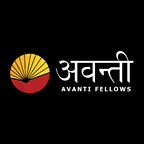Celebrating the field of STEM on Engineer’s Day
Why STEM is a strong focus for us
An undergraduate STEM degree can significantly improve a child’s life chances. STEM education is an important growth lever for rural India, given the potential opportunities in a large knowledge-based economy. Rural students who complete an undergraduate degree see more than a 4-fold increase in salaries; those with a degree from the top 10% STEM colleges like IIT, there is a 10-fold increase in income.
Rural communities lack resources to provide the requisite scientific and technical knowledge that urban ecosystems do. The crisis of suboptimal foundational education among rural school children is accentuated by the hurdles of accessibility to quality education services, non-existent learning ecosystem, and negligible exposure to education technology, making it even harder for remedial learning.
However, entrance exams like JEE and NEET require a very strong foundation. These are amongst the most challenging, and competitive exams in the world and are naturally biased towards students who can afford expensive test-preparation and premium private schools. To promote equitable access to higher educational opportunities in science and technology, alternative delivery structures with clear objectives have to be designed. Further, these structures must be focused on evidence and delivered using technology for scale.
Many low-income students struggle in college entrance due to lack of professional coaching, mentoring, and need technical support in exam preparation.
This is corroborated by the following statistical figures :
- 40% students are below grade level by Grade 9
- About 1/3rd students drop out after Grade 10.
- Only 1/3rd students are able to choose Science and Maths specialization in Grade 11.
With over 3,200 engineering colleges, Engineering graduates in India have amongst the highest employability (52% compared to the nation’s graduate employment rate of 13%), and offer the best compensated professional jobs in India.
On the contrary, India has 420+ medical colleges, and few produce quality doctors.
More than 2 million students appear for the IIT-JEE and NEET — admission tests for these engineering and medical colleges. These exams are inherently biased towards students who can afford expensive test-preparation and premium private schools.
In 2014, >30% of students from premium private schools placed in the top 10% at these tests. Only 1.5% of low-income rural students performed comparably; more than 10 times less likely to succeed than their more affluent peers.
We are helping students gain skills relevant to the future of work.
JNV:
Avanti Fellows, an EdTech non-profit service provider has been successful in bridging the STEM learning deficit. Entrance exams like JEE & NEET require a strong technical foundation. Aside from being highly competitive, tests exhibit a bias towards students, with greater access, and resources. By providing accelerated technical training and career guidance for Grade 11–12 students at JNV, Avanti enables ~50% students appearing for college entrance exams to qualify into top STEM colleges, which is twice the rate of JNV schools.
Avanti has been providing technology-led blended learning using digital content, standardized assessments, and platforms to JNV students across grades 11–12. It has been helping to fulfil the aspirations of low-income students in qualifying for admissions to top technical institutes to achieve stable, high-paying careers. Avanti runs one of the largest and most impactful secondary school interventions in Mathematics and Science.
Avanti enhances school systems to create programs that are able to deliver consistent outcomes in low-resource settings. Students are trained through structured content, regular practice and peer to peer learning that prepares them for competitive exams. These after-school classes run for 4 hours on weekdays and 6–7 hours on weekends with the aim to provide additional test-prep for college entrance exams. Its working model improves the relevance and quality of curricular STEM education through blended learning (video content, student app, adaptive testing) and by working closely with school administrators to implement a rigorous training, monitoring and evaluation framework. Avanti also supplements this model with volunteer-led mentoring as well as career services.
The students that form part of the JNV program come from low-income families and the intervention with them starts while they are in Grade 11, continuing till they enrol into, and in some cases, till they graduate from professional college. The program has a special emphasis on female students to achieve more equitable representation of girls in India’s top STEM colleges and technology and science careers.
Sankalp:
Avanti is working with the State of Haryana to roll out a structured blended learning curriculum to improve STEM education across Grades 9–12. The intervention trains teachers to integrate Avanti’s peer instruction curriculum (structured workbooks and supplementary video content) into day-to-day classroom instruction.
Avanti is currently working with the Michaell and Susan Dell Foundation (MSDF) in the state of Haryana, improving STEM learning levels for 240 regular government schools. Impact evaluation is being led by J-PAL, whose work is funded by MSDF.
Chennai Intervention:
Avanti has implemented both models in separate states with significant success rates. In an earlier study at the Chennai Municipal Schools, funded by the MacArthur Foundation. Researchers found that Avanti’s technology-led classroom program was found to lead to a >0.6 Standard Deviation shift in Math achievement in a single year (the highest such gain reported in India). The comparable impact would make Haryana the top-performing state in India at STEM learning.
This article was written by Vandana Goyal, Executive Trustee at Avanti Fellows.
About the Author
Vandana is the Executive Trustee at Avanti Fellows and leads all operations and fundraising strategy at Avanti Fellows. In addition to her work at Avanti, Vandana is a Board Member and former Chief Executive Officer of the Akanksha Foundation. In her capacity as CEO at Akanksha Foundation, she lead a team of 550 employees and over 500 volunteers, all serving 21 schools that educate 9,300 children in India. In 2012, the World Economic Forum appointed her as a Young Global Leader. Vandana has graduated from Claremont McKenna College with a degree in Economics.
